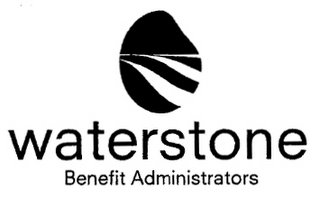TTAB Again Reverses 2(d) Refusal Based on Unimpressive Third-Party Registration Evidence
For the second time in two weeks, Judge Seeherman took a dim view of the PTO's third-party registration evidence and penned a TTAB reversal of a Section 2(d) refusal. On December 23rd it was the Gravity Systems case, blogged here. This time the Board reversed a refusal of the mark WATERSTONE for hedge fund management services, finding it not likely to cause confusion with the mark WATERSTONE BENEFIT ADMINISTRATORS & design, registered for "administration of self-insured employee benefit plans" ("BENEFIT ADMINISTRATORS" disclaimed). In re Waterstone Capital Management, L.P., Serial No. 78223503 (December 30, 2005) [not citable].

Not surprisingly, the Board saw the word WATERSTONE as the dominant part of the registered mark, and it found the marks to be similar in "appearance, pronunciation, connotation and commercial impression."
The Examining Attorney contended that the involved services "are of a kind that may emanate from a single source." Applicant asserted that its hedge fund management services and Registrant's benefit plan administration services are "distinct and highly specialized" and that "the same consumers would not be exposed to both [marks] under circumstances likely to lead to source confusion."
The PTO submitted 21 third-party registrations, relying as usual on In re Albert Trostel & Sons Co., 29 USPQ2d 1783 (TTAB 1993), for the proposition that such registrations "which individually cover a number of different items and which are based on use in commerce serve to suggest that the listed goods and/or services are of a type that may emanate from a single source."
The Board, however, noted that only one of the registrations "may be said to list the specific services identified in the application or the cited registration, and even in this registration the services are not exactly the same." The other 20 registrations did not specifically include hedge fund services.
The Examining Attorney contended that since the recitations of services in the third-party registrations are broad, they are presumed to encompass all services of the type described, including hedge fund management services. The Board pointed out that this is "an overstatement of the probative value of third-party registrations."
When considering the applied for mark and the registered mark, the Board must look to the goods and services as identified in the involved application and registration, and must assume that (absent express limitations) the registration encompasses "all goods [and services] of the nature and type described, [and] that the identified goods [and services] move in all channels of trade that would be normal for such goods [and services]." Not so for third-party registrations:
"when third-party registrations are being submitted for the purposes of showing that goods or services are related, the same presumptions of Section 7(b) of the Trademark Act do not apply. *** third-party registrations are not evidence that the marks shown therein are in use, or that consumers are familiar with them. They simply 'serve to suggest that the listed goods and/or services are of a type which may emanate from a single source.'"
Here, the 20 third-party registrations did not show that the involved services are related. Moreover, the one registration of pertinence "does not appear to cover 'administration of self-insured employee benefit plans.'"
"Rather, it appears to us ... that hedge funds are a specialized investment tool and that even companies which offer a variety of investments and financial services do not normally offer hedge fund management services."
The Board therefore found that "the factor of the similarity of the services" favored Applicant.
Next, the Board observed that "people who invest in hedge funds are relatively wealthy" and experienced in investing.
"As far as we can tell, the only people who are likely to be purchasers of both applicant's and the registrant's services would be a high level executives or owners of a company who would be choosing an entity to administer the self-insured employee benefits plans for that company, and who would have the means to be candidates to invest in a hedge fund."
Because the number of persons in this category is "relatively limited, the Board found that "the factor of the potential for confusion, i.e., that it is de minimis, favors applicant."
Finally, the sophistication of the purchasers and the care they would exercise (given the sums of money involved), was another factor that favored applicant.
Therefore, the Section 2(d) refusal was reversed.
Text Copyright John L. Welch 2006.

0 Comments:
Post a Comment
<< Home